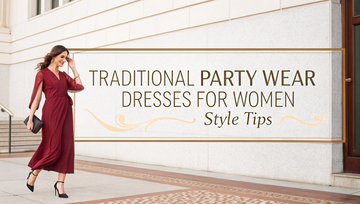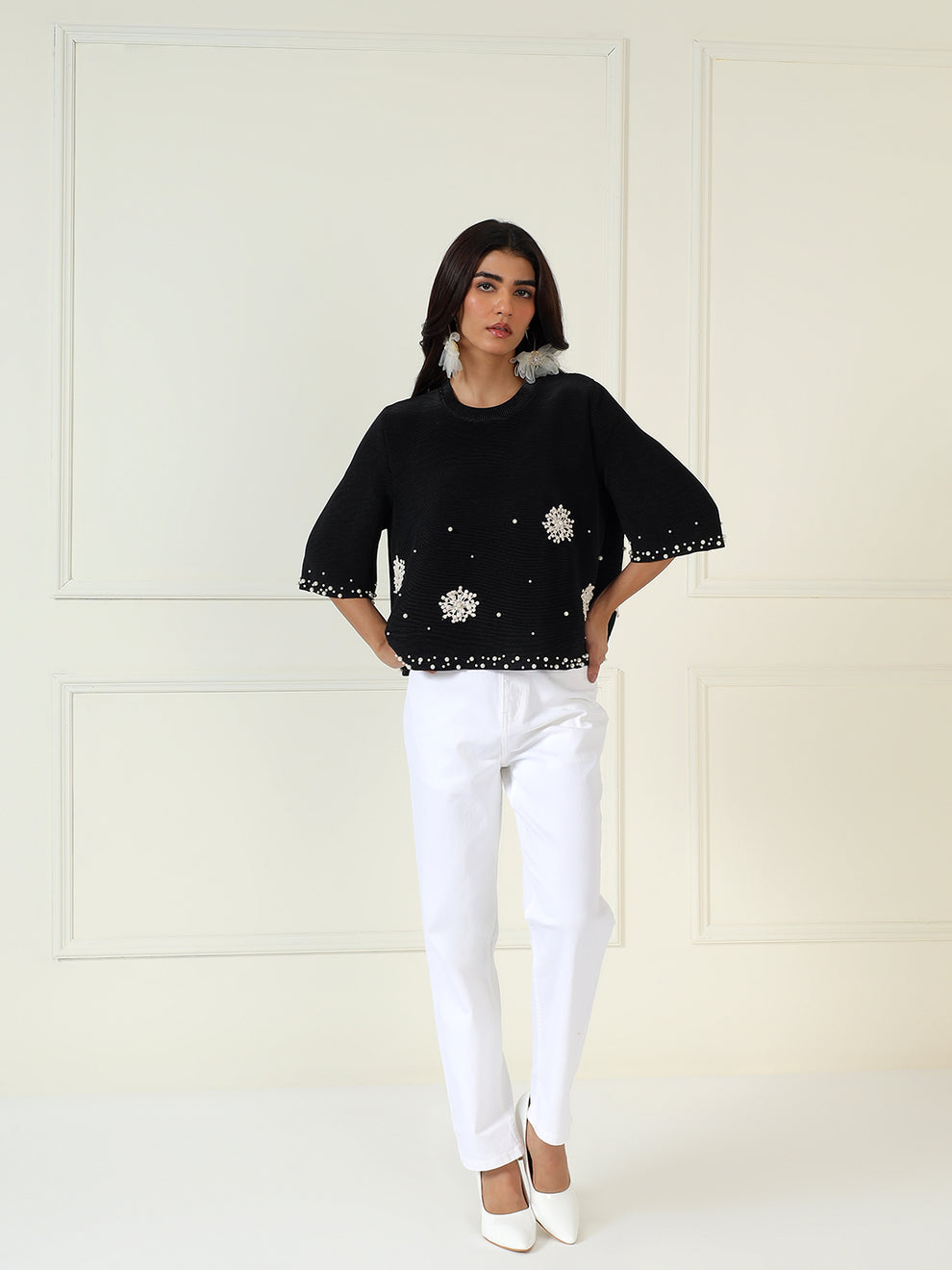When it is wedding season or festive celebrations have started, finding the right outfit is on the agenda. Traditional party wear dresses for women are still the majority option in Indian festivities, marrying the cultural traditions with contemporary glamour. The evergreen nature of these outfits provides elegance, sophistication, and certainly speaks to the deeper connection with beautiful textiles that make any occasion alive.
Why Are Traditional Outfits Still Popular at Parties?
Despite the effect of Western style, traditional attire remains the preferred choice for Indian celebrations. These clothes exhibit centuries of workmanship through intricate embroidery, pricey fabric, and complex designs that Westerners certainly can't replicate.
Traditional party wear offers splendid versatility. The same outfit can be styled otherwise with diverse add-ons, earrings, or draping strategies. These ensembles suit everybody, of all types and age groups, making them universally flattering alternatives for any birthday party.
What Makes Party Wear Traditional Dresses Unique?
Party wear traditional dresses for women are particularly designed for unique occasions. Unlike everyday ethnic pieces, these pieces are characterised by tricky elaborations, top-rate fabrics, and intricate designs, supposed to create memorable impressions.
Key elements include zari work, sequin embroidery, stone detailing, and reflective work on high-priced fabrics like silk, velvet, brocade, and georgette. Modern designers now blend conventional aesthetics with current cuts, growing fusion portions that enchantment to trendy style-conscious ladies.
Popular Traditional Party Wear Options
Sarees: Timeless Elegance
Sarees are the ultimate expression of traditional Indian wear. For parties and events, heavy border styles like Banarasi silk sarees and Kanjeevaram sarees create some beautiful looks. For events that will have dancing, georgette and chiffon sarees with embellished borders would be lighter alternatives.
Pre-stitched sarees have made wearing sarees much easier by achieving the same elegant look while offering convenience for those who prefer different options in wearing their sarees without draping.
Lehenga Cholis: Grand and Glamorous
Lehengas feature flared skirts, fitted blouses, and dupattas that create regal silhouettes. Modern designs include crop-top blouses, cape dupattas, and asymmetrical hemlines that add contemporary flair.
Pastel shades work beautifully for daytime events, while jewel tones like emerald and sapphire are perfect for evening celebrations.
Anarkali Suits: Graceful Silhouettes
Anarkali suits feature fitted bodices flowing into flared skirts, creating elongated silhouettes that flatter most body types. For parties, choose Anarkalis with gota patti work, zardozi embroidery, or stone embellishments.
Pair them with churidar pants for traditional looks or palazzo pants for contemporary styling.
Sharara and Gharara Sets: Modern Revival
These attires from Pakistan are making a comeback. Shararas include wide-legged trousers that flare from the waist, and gharas have fitted portions that flare dramatically from the knee.
Both styles are comfortable fits with a dramatic look, giving flexibility for occasions where you will be wearing them for an extended period.
How to Choose the Right Traditional Party Wear?
Consider the Occasion
Different events require varying formality levels. Grand wedding receptions call for heavily embellished pieces, while intimate gatherings suit lighter embroidery. Traditional party wear dresses for women come in various styles to match every celebration type.
Match Body Type
Understanding body shape helps in selecting flattering outfits. Pear-shaped figures look great in Anarkalis and A-line suits. Hourglass bodies can experiment with fitted lehengas. Athletic builds benefit from structured pieces with detailed work.
Select Appropriate Fabrics
Fabric choice impacts both comfort and appearance. Silk and brocade offer structure for winter events. Cotton, silk, and georgette work better for summer celebrations, providing breathability while maintaining elegance.
Velvet has become popular for winter weddings, offering luxury and warmth. However, consider event duration before choosing heavier fabrics.
Best Colors for Traditional Party Wear
Color selection traditionally plays a crucial role. Red remains popular for weddings, symbolizing celebration and prosperity. However, modern celebrations welcome diverse color choices.
Emerald green, royal blue, and deep purple create striking evening looks. For daytime events, pastels like blush pink, mint green, and powder blue photograph beautifully and create fresh appearances.
Metallic shades, including gold, silver, and rose gold, have gained popularity for cocktail parties, offering glamorous options for contemporary celebrations.
Styling Tips for Perfect Looks
Jewelry Selection
Balance is essential when choosing jewelry. Heavily embroidered outfits pair best with minimal jewelry, while simpler pieces can handle elaborate necklaces and earrings.
Kundan, polki, and temple jewelry complement dresses for women party wear traditional, authentically. For contemporary looks, mix traditional outfits with modern geometric jewelry.
Footwear Choices
Whether you choose a pair of embroidered juttis or mojaris, they create a genuine traditional flair. If you want some height, embellished heels in similar colours do a great job too. Whatever shoes you choose, make sure they are comfortable, especially if you will be standing for a long time or dancing.
Finishing Touches
Hairstyles should complement outfits without overpowering them. Traditional buns with flowers suit sarees and lehengas, while loose waves work with Anarkalis. For makeup, well-defined eyes and lip colors harmonizing with outfits create polished looks.
Where to Shop for Quality Traditional Wear?
Online shopping offers convenience and variety for traditional dresses for women party wear. Read reviews carefully and check return policies before purchasing. Local boutiques provide the advantage of trying before buying and often offer customization services.
Rental services have become popular for one-time events, providing access to designer pieces at affordable prices. This option supports sustainable fashion while offering variety.
Care and Maintenance Tips
Proper care ensures traditional outfits remain beautiful for years. Most heavily embellished pieces require professional dry cleaning to preserve embroidery and fabric quality.
Store outfits in breathable cotton covers away from direct sunlight. Use mothballs or neem leaves for insect protection, but avoid direct contact with garments. For sarees, change fold lines periodically to prevent permanent creases.
Current Trends in Traditional Party Wear
Modern designers consistently create new styles while bringing the traditional silhouette to the forefront. Capes placed on dresses, such as lehengas, provide that dramatic expression. Off-shoulder and cold-shoulder blouses may add a contemporary feel while retaining an ethnic flavor.
Sustainable fashion influences traditional clothes, as designers use organic fabrics and natural dyes. Mix-and-match coordination has opened the door to new creative potential. Designers can pair traditional parts with modern parts for a more stylish and unique outfit.
Embrace Traditional Elegance
Party wear dresses for women traditional represent more than fashion choices. They celebrate heritage, support artisan communities, and connect wearers to centuries of textile artistry. Whether choosing a flowing Anarkali, regal lehenga, or elegant saree, these outfits offer endless possibilities for self-expression.
The most stylish clothing can be changed to something that brings confidence and comfort a person’s being of clothing. So, while traditional wear brings cultural ties, it lets a person feel comfortable in their own sense of style. Even while all of the celebrations are continuing, and bringing folks together, you can still make these garments wonderful for every affair bringing extras to memorable occasions and also honoring traditions and even looking on to new memories continuing for generations to come.
Frequently Asked Questions
Q1: How many traditional party wear outfits should one own?
Having 3-5 versatile pieces in different colors and styles ensures readiness for various occasions. Focus on timeless designs that won't feel dated quickly, including one heavily embellished outfit for grand events and lighter options for casual celebrations.
Q2: Can traditional party wear be worn to non-Indian events?
Traditional Indian attire is increasingly appreciated globally. Gala dinners, formal events, and cultural celebrations welcome ethnic wear. Choose slightly simpler designs for international events to ensure appropriateness.
Q3: How to avoid looking overdressed in traditional wear?
Match outfit grandeur to occasion formality. When uncertain, slightly underdressing is safer. Simple outfits can be elevated with accessories, but heavily embellished pieces are difficult to tone down.
Q4: What distinguishes party wear from wedding wear?
Wedding wear typically features heavier embellishments and richer fabrics. Party wear offers versatility with lighter options suitable for various celebrations. Many outfits work for both categories depending on styling.
Q5: How to make traditional outfits look contemporary?
Experiment with unconventional color combinations and modern blouse designs. Try unique draping techniques and mix traditional pieces with contemporary accessories. Hairstyle and makeup choices significantly impact overall appearance.
Q6: Should one invest in expensive traditional party wear?
Balance is important. Invest in one or two high-quality pieces in classic designs for repeated wear. Supplement with affordable options for trend-driven styles worn less frequently.
Q7: When to start shopping for traditional party wear?
Begin shopping 3-4 weeks before major events, especially if alterations or customizations are needed. This timeline allows unhurried selection and handling of unexpected issues.













